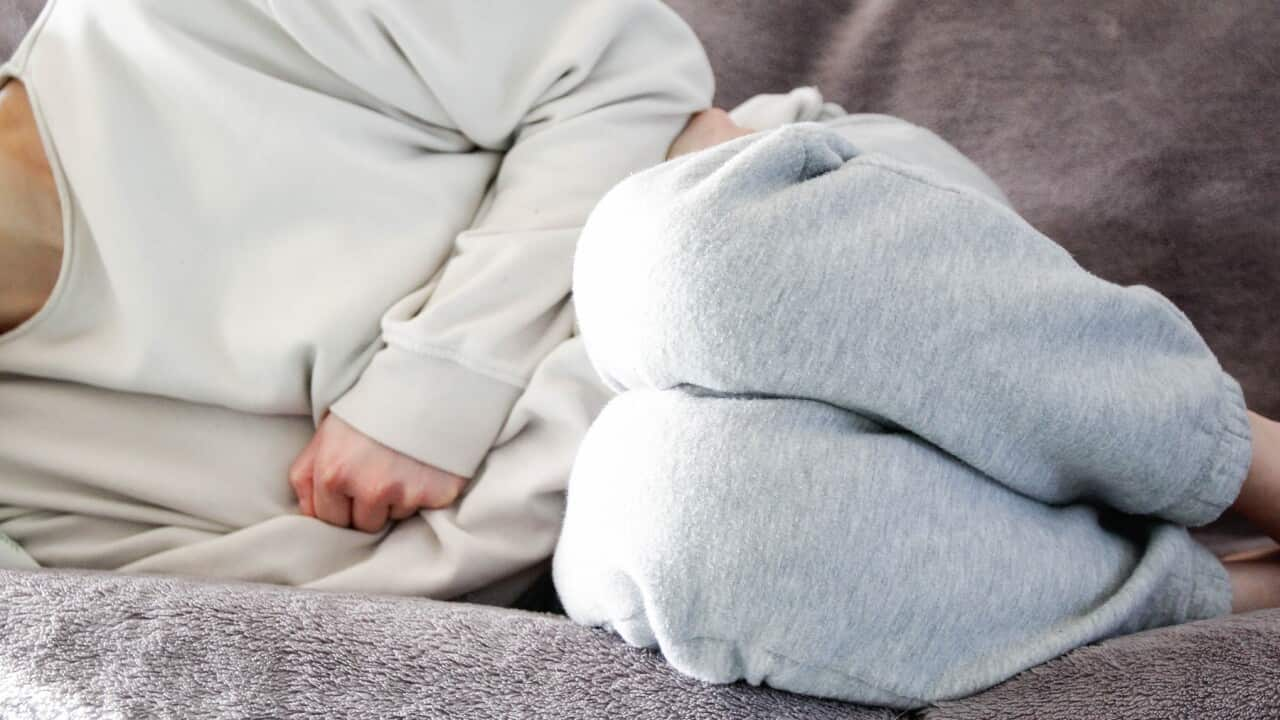TRANSCRIPT
Rent increases have forced Kaitlyn, who relies on the Disability Support Pension, to move around for much of her adulthood.
"There's so much trauma that comes from living in housing security for so long. It usually triggers a extreme trauma response for me."
At 38-years-old, she lives in a sharehouse, and says she'll likely be renting for the rest of her life.
"This last move cost me two-and-a-half grand. Because being physically disabled, I just can't do a lot of the moving labour myself. And that's even with friends helping."
Like Kaitlyn, many Australians relying on Commonwealth Rent Assistance or living on the minimum wage are in severe rental stress.
Everybody's Home spokeswoman Maiy Azize says this is the case, even after recent indexation changes [[made on Friday SEPT 20]], which saw an increase to the aged pension, JobSeeker and the disability pension.
"What we found is that across Australia, there is practically no region of the country where a person on a low income can afford to pay the rent. If you're on JobSeeker in a capital city, the average unit rent is 124 per cent of your income. So you really can't afford to rent. If you're on the aged pension or the disability support pension, it's 90 per cent of your income. If you're working full time and you're on the minimum wage it's 80 per cent of your income. So, what we're seeing is that the housing crisis-- we've seen it climb up the income ladder over the last couple of years but we're still seeing it's the people on the very lowest incomes who are missing out the most."
The group spearheads a national campaign to address housing affordability in Australia.
According to their recent [[SEPT 2024]] 'Priced Out' report:
Based on capital city rents, someone on the minimum wage could be left with just over $25 a day after paying rent, while people on the Age Pension and Disability Support Pension could be left with as little as $8 a day.
And a person on JobSeeker could be left with nothing .. and have to find more than $100 on top of their income.
Outside the capital cities, the most unaffordable areas include the Gold Coast, Sunshine Coast, Wollongong and Northern Western Australia.
With many people on Centrelink or the minimum wage in those areas having to spend at least half their income on rent.
Antipoverty Centre spokeswoman Kristin O'Connell says it's a story she's all-too-familiar with.
"We know that welfare recipients have been struggling in the private rental market for a long time. And we've also seen that get severely worse over the last year or two. And at this point, a lot of people are breaking and ending up without a home at all because of how bad things have gotten."
Advocates say several measures are needed to address the issue, including an increase in the rate of income support payments, along with nationally consistent protections for renters, tax reforms and more social housing.
Harry Millward is the general secretary for the Renters and Housing Union.
"Raising welfare to a liveable amount would be a great start in reducing the cost of living crisis. I think we would like to see public housing built, or accquired, until there is no more need for it. As long as there are people on that public housing waiting list, that's a problem. I think that recognising housing as a human right, the need for shelter, is a human right."
Mr Millward says there are other considerations, too.
"I think that Everybody's Home have the broad strokes right. There's a lot that we would agree with on the issue. I think that they are perhaps too eager to accept community housing as a replacement for public housing. Public housing is more affordable and has more protections for people. It has longer leases."
The federal government has said it has the ambition to support the construction of 13,700 homes through the Housing Australia Future Fund. [[announced Mon 16 Sep]]
But Prime Minister Anthony Albanese has expressed frustration at the Help to Buy scheme remaining politically deadlocked.
"What the Greens are doing is that they defer votes on things. What that has done is defer the rollout of public housing, which we need. We announced 13,700 in the first installement last Monday. They could have been built. People could have been living in them now except for this gameplay that went on."
Greens Senator Nick McKim says it's Labor who has to work with the Greens to ensure their legislation won't make houses more expensive.
"Housing affordability has never been worse in Australia. Labor's legislation will actually make it worse again. We can't negotiate with ourselves. Labor should sit down with us and work through a solution to the housing crisis."
For people like Kaitlyn, reform can't come soon enough.
"The rent increases need to be frozen immediately. Like, the government needs to freeze rent increases... The rent keeps increasing while the quality of the housing that I'm living in has not increased. So, I'm not living in a better place than I was six months ago and my house mates aren't either. There's so many amenities that didn't come with the rental. It's not like anything has improved. Repairs get ignored. Maintenance requests get ignored. But the rent keeps going up. And that's not fair."













